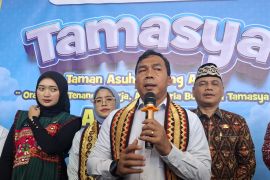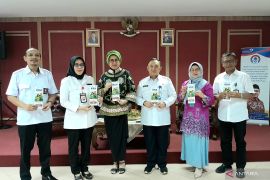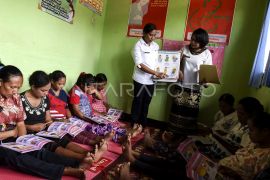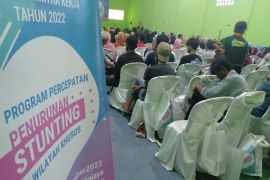To win the demographic bonus, the government must work to create a qualified population in the productive ageJakarta (ANTARA) - The National Population and Family Planning Agency (BKKBN) has said that Indonesia is currently facing both opportunities and challenges related to the demographic bonus.
"Indonesia is currently facing opportunities and challenges of a demographic bonus," Director of Reproductive Health Development at BKKBN Safrina Salim said during a webinar on ‘Reproductive Health in the Millennium Era’ on Thursday.
Indonesia has the opportunity to reap a demographic bonus because the number of people in the productive age of 15 to 64 years will be higher than the non-productive age of 65 years and over, and account for more than 60 percent of the total population, she explained.
The 2020 Population Census data showed that the young generation made up around 27.94 percent of the productive age group, she noted.
"To win the demographic bonus, the government must work to create a qualified population in the productive age. Otherwise, it will be a burden for the state in facing the demographic bonus," she said.
Teenagers have a role to play by avoiding risky behaviors such as free sex and child marriage, Salim said. Teenagers must also be responsible for their reproductive health to benefit from the demographic bonus, she added.
Each teenager also has the responsibility to organize and plan their future family life, since it is closely related to the health of mothers and babies, and is of particular concern in stunting prevention, she said.
In order to reap the demographic bonus, Salim asked all teenagers to educate themselves about reproductive health to avoid various deviations, increase sex education, and avoid premarital sex.
“Adolescents as potential couples of childbearing age need to be prepared carefully and have knowledge about reproductive health from an early age. So that later they can carry out their reproductive functions well, form a family and give birth to a healthy and intelligent generation," she elaborated.
Meanwhile, Deputy for Family Planning and Reproductive Health (KBKR) at BKKBN Eni Gustina said that the 2020 Population Census showed the proportion of the productive age population has risen to 70.72 percent.
This is a sharp increase from 53.39 percent in 1970. The figure shows that the country has entered the era of demographic bonus, she added.
However, Indonesia is also facing challenges since the proportion of the elderly population has continued to increase, she said.
In 1970, the proportion of elderly people aged over 65 years was 2.49 percent. That number has now increased to 5.95 percent, she highlighted.
Likewise, the proportion of the population aged 0–14 years fell from 44.12 percent in 1970 to 23.33 percent in 2020, she noted.
Gustina said the state should learn from countries such as Japan and Singapore, which have faced problems with high life expectancy of the elderly. The state must help the elderly to live productively and independently so that they do not become a burden on the younger generation, she added.
“We must be able to anticipate this by learning from other countries whose life expectancy is already high. Do not let the elderly population become a burden on the younger generation," she emphasized.
Related news: Demographic bonus, industrial revolution become manpower challenges
Related news: Need focused effort to reap demographic bonus: BKKBN
Related news: University students backbone of Advanced Indonesia 2045: BPIP
Translator: Hreeloita Dharma S, Resinta S
Editor: Sri Haryati
Copyright © ANTARA 2022












